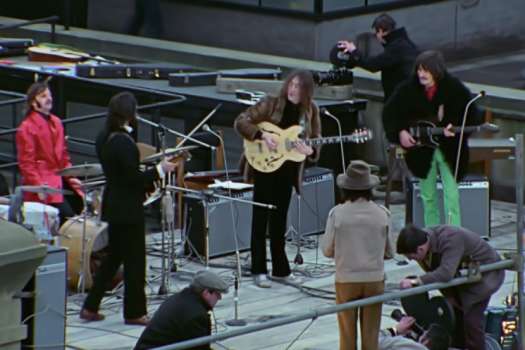It was only a few short years ago that Tom Tykwer burst onto the scene with Run Lola Run, an audacious and wildly original thriller that won over audiences worldwide. His last film, The Princess and the Warrior, contained a similar amount of style but suffered from an overlong running time and a script that was too weird for it's own good. Now, with Heaven, Tykwer's created a film that's just as unusual as anything he's done before and is mesmerising virtually from start to finish.
Cate Blanchett stars as Philippa, an English woman living in Italy with a score to settle. Her husband died a few years ago after overdosing on drugs, and after discovering the identity of the dealer, she heads to his office with a bomb (intending, of course, to blow him up). But something goes awry, and he does not die although four innocents do. Philippa doesn't hide the fact that she's the bomber she calls the police immediately afterwards and confesses but is stunned to learn that her intended target was spared. Her regret at her actions evokes the sympathy of a police officer named Filippo (Giovanni Ribisi), who devises a plan to help Philippa escape. They do, and head off on a bizarre journey that will take them throughout the Italian countryside.
There's nothing conventional about Heaven, from the unpredictable script (co-written by the late Krzysztof Kieslowski, director of the critically acclaimed Red, White, and Blue trilogy) to Tykwer's inventive visual style. Though the film kicks off with an exceptionally tense opening sequence, featuring Philippa's bombing attempt, the majority of the movie exists in the same dreamy, off-kilter world that The Princess and the Warrior inhabited. Tykwer fills every shot with gorgeous cinematography, which makes the film (if nothing else) amazing just to look at.
But if you don't buy into Tykwer's idealised universe, the majority of the film might be a little hard to swallow. Take, for instance, Filippo's decision to essentially toss his career right out the window to help out a woman he's just met (and hasn't even spoken to). And as the film progresses, we're never really given a concrete explanation for his seemingly instantaneous crush on Philippa (and it's got to be more than just a crush, too, considering the degree to which he's willing to throw his life away). If you can accept that relationship, which is really the core of the film, Heaven will likely be far more effective than it would be for someone who just can't buy Filippo's all-of-a-sudden love for this woman.
Because, bottom line, that's what Heaven is all about. There comes a point at which the plot basically fades away, and the movie becomes more about the relationship between these two characters. It's still watchable, certainly, but not quite as compelling as it was near the outset. And then there's the ending, which will no doubt divide viewers. Much like John Sayles' Limbo, the conclusion will either seem like a cop-out or a cathartic moment in the lives of the characters. Still, despite its flaws, Heaven cements Tykwer's status as a great new director and should easily please his fans though, like The Princess and the Warrior, its laid-back pace will probably upset those who loved the frenetic pace of Run Lola Run.
Tom Tykwer
Tom Tykwer

BY David NusairPublished Nov 17, 2016



